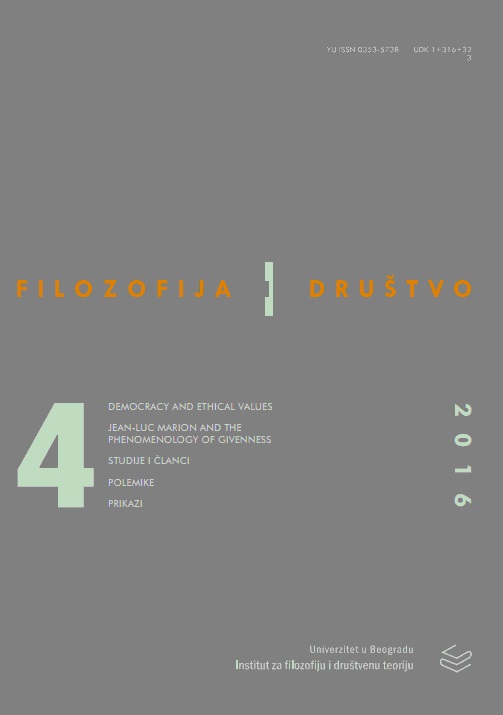Deliberativna demokratija između moralizma i realizma
Deliberative Democracy between Moralism and Realism
Author(s): Andrija ŠoćSubject(s): Ethics / Practical Philosophy, Political Philosophy
Published by: Institut za filozofiju i društvenu teoriju
Keywords: Political realism; political moralism; legitimacy; democracy; deliberation
Summary/Abstract: The topic of this paper is the debate between political moralists and political realists. I will try to show that it is possible to find the middle ground that simultaneously satisfies the main demands of both camps while resisting objections directed against each. In the first part, I start with the view shared by both moralists and realists: that the main challenge lying before a political theory is solving the problem of legitimacy. I first sketch Rawls’ moralist approach. I then move to outline the realist criticisms of such moralism. I will mainly follow one of the most detailed recent theories – Sleat’s realist theory, although I will also draw from other well-known realists. In the second part, I outline objections against realism. They somewhat similar to the same criticisms they themselves direct against moralists. The main issue is, in short, the problem of underdetermination – that is, the insufficient determination of political action by facts. Since realists hold that a political theory has to be applicable, their view is thus considerably weakened by such criticism. In the third part of the paper, I point to deliberative theory as a view that can answer both realist criticism – because its main aspect is dealing with the way things work in actual politics of concrete societies – but it can also answer criticisms directed against realists themselves, because empirical research of deliberation suggests an actual and viable way to solve the problem of legitimacy – by raising the quality of deliberation. Moreover, a deliberative theory retains autonomy of the ethical, although it doesn’t do that, unlike moralism, by encroaching on the autonomy of politics. Thus, at the end of the paper, I claim that such a deliberative approach can be accepted by both realists and moralists.
Journal: Filozofija i društvo
- Issue Year: 27/2016
- Issue No: 4
- Page Range: 920-937
- Page Count: 18
- Language: Serbian

